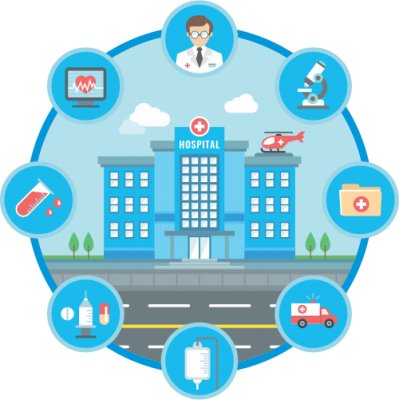Preventive Healthcare – Driven by Technology
Today healthcare across the globe is making the shift from being reactive to becoming more proactive. A move in this direction is the rise of preventive healthcare which is leading to an explosive growth in the global preventive healthcare technologies and services market. According to reports, the global preventive healthcare technologies and services market expected to reach USD 432.4 billion by 2024. Some of the key factors that are driving this growth are the rising awareness about how preventive healthcare technologies can improve the quality of life, increase lifespan and reduce healthcare related expenses. In this blog, we take a look at how technology is playing a critical role in enabling preventive healthcare.
Wearable Devices
Wearable devices are gradually beginning to play a prominent role in healthcare transformation and are great enablers of preventive healthcare. The wearable technology market is expected to touch USD $70 billion by 2025 and the wearable devices market is expected to touch USD$ $41 billion by 2020. From counting the number of steps you are taking to the number of hours you sleep, wearable devices are now being used to self-monitor medical conditions and promote a healthier life. From heart rate trackers for cardiac care, thyroid care, monitoring chronic conditions such as diabetes and pulmonary diseases, wearable devices are helping patients become more invested in their own healthcare by providing them alerts to changes in their health metrics. Wearable devices can play a crucial role in controlling preventable diseases such as obesity, type 2 diabetes, cardiovascular diseases, high blood pressure etc. by helping the users adopt a healthier lifestyle and helping them change their everyday sedentary habits.
Big Data
Like every other industry that Big Data has touched, it is playing a crucial role in transforming healthcare as well. Data collected from smart devices can be analyzed real time which can be extremely useful to detect warning signs and enable immediate preventive measures. Big Data is also being used for outbreak modeling to prevent and contain pandemics and epidemics as well. Healthcare professionals are increasingly leveraging big data to gain intelligence into patient health using digital health records and enable evidence-based medicine to identify patients with potential health risks and take preventive action and avoid hospitalizations and other medical interventions.
Mobile Health aka mHealth
Mobile technology is another great enabler of preventive healthcare. Given the increased use of smartphones by doctors and patients alike, mobile technology is being used in the form of specialized mobile applications to regularly assess patient health conditions, provide personalized care, offer disease management capabilities and foster seamless and quality conversation between patient and healthcare providers. Mobile technology can be used to send timely reminders for health checks, assess existing health conditions and manage chronic diseases with ease and help greatly in disease prevention.
Sensors
Taking wearable devices a step ahead are sensors which are gradually but firmly cementing their place in the physician’s prescription pad. Sensors such as sweat sensing bracelets measure the chemical levels present in the users sweat and intimates the user of the presence of chemicals, electrolytes, heavy metals etc. and are being used actively in disease detection and prevention. Biosensors measure a user’s heart rate, respiratory rate, skin temperature etc. and transmit the data collected to the right healthcare stakeholders if any of the relevant parameters are borderline or cross the desired limits. Non-invasive heart monitoring devices are being employed to remotely monitor the heart health of patients and can detect cardiac arrhythmias before they occur. Along with this are ingestible sensors to gather accurate physiological measurements such as heart rate, respiratory rate, skin temperature etc. to improve health surveillance and enable preventive healthcare.
Given that each year, millions of people across the globe die of preventable diseases, technology interventions have the potential to drive good health choices, enable timely interventions, promote self-monitoring, reduce medical errors and healthcare costs and improve health outcomes. Quite clearly, preventive healthcare technologies are emerging as the next healthcare frontier to promote early intervention and respond to health issues faster and in a ti




